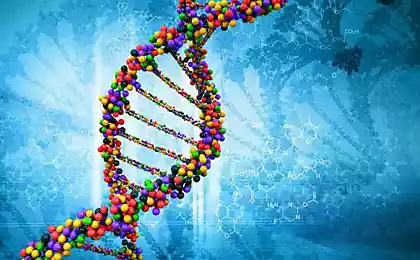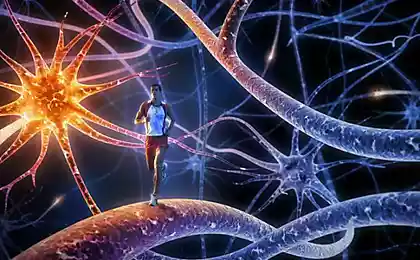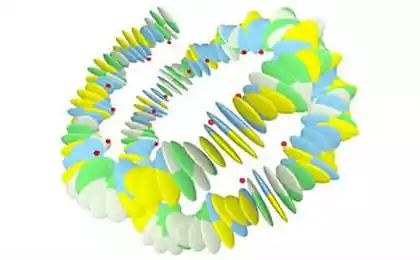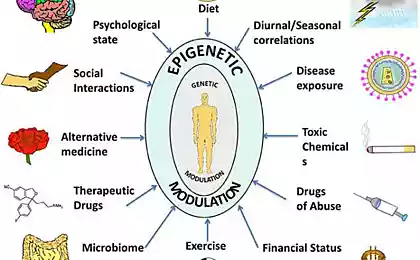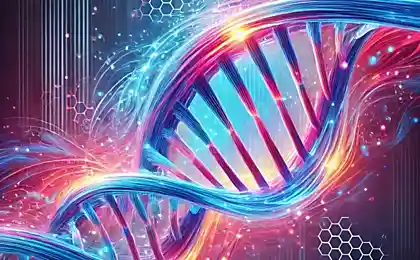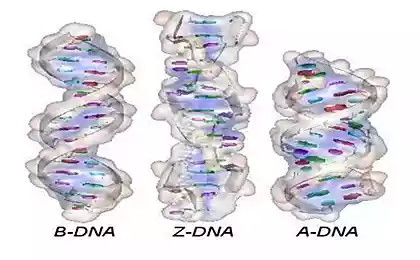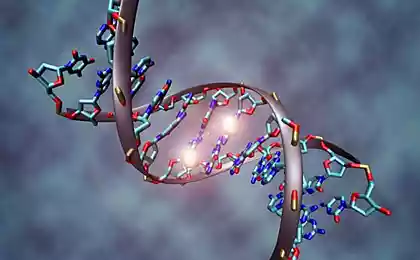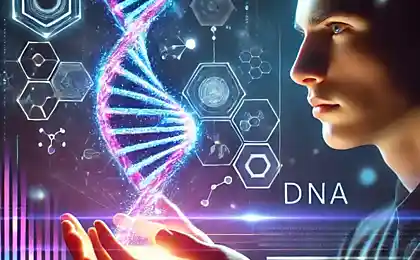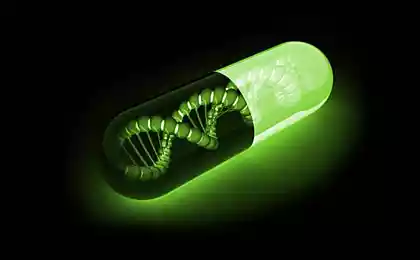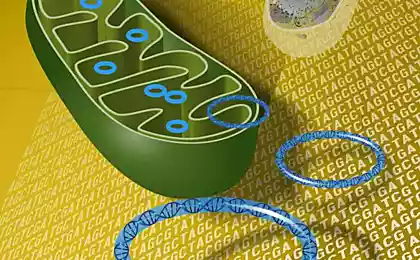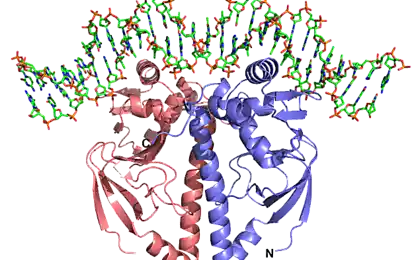444
Scientists found out that DNA helps to make friends
Genes friends have more in common than genes are completely strangers to each other people, and the degree of genetic relationship between friends is approximately the same as between the Pippin family.
Although we used to say that opposites converge, the reality often shows the opposite, and people often are most similar to the one they are closest – for example, their "other half". Usually in such cases speak about the psychological or social similarity, that is, for example, pairs are formed between people with the same level of education, level of income, similar habits, etc. However recently in the journal Proceedings of the National Academy of Sciences published an article in which Benjamin Domaine (Benjamin W. Domingue) of the University of Colorado in boulder and his colleagues reported that spouses are often similar not only in socio-psychological criteria, but also on genetic. That is a romantic date, you have the great chance to end the marriage, the more similar your DNA.
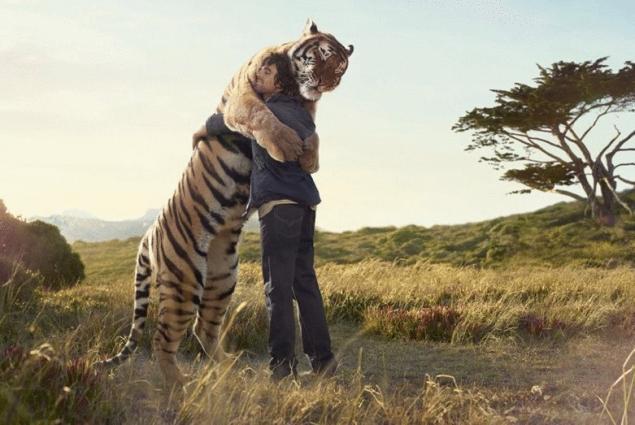
And here a month later after this work in the same Proceedings of the National Academy of Sciences is another article authored by Nicholas Christakis (Nicholas A. Christakis) from Yale, and James Fowler (James H. Fowler), University of California, San Diego, which again refers to genetic similarity, but between friends. Similarities were identified after analyzing the DNA of almost two thousand people, with each other in a relationship not married. In most DNA compared to about 1.5 million markers indicating genetic variation. It turned out that friends have similar DNA to the same extent that they are similar, for example, you and your great-great-great grandfather third cousin or brother. Most often the common genetic characteristics of the concerned genes that control the sense of smell. So we can say that friendship is to some extent a similar sense of smell.
But why friendship is so important the sense of smell? Perhaps this is the legacy of the ancient ancestors in the past it could play in the lives of people a much greater role than now. For example, those who loved the smell of blood, could get together to go hunting, and those who liked the smell of wild flowers, could be engaged in gathering. However, now the smell plays a big role in human relations. Hardly anyone would be nice to communicate with someone whose smell is very annoying.
In 1994, the Swiss biologist Claus Wedekind conducted an experiment called the "experience of smelling t-shirts". Dozens of men wore the shirts for two days straight without removing, after which they were handed over to the women to assess the smell. Sniffing a t-shirt, participants had to determine how they like the carrier of this specific smell. When assessing the results found that women prefer men whose immune systems differed significantly from their own. And those smells which women were described as similar to the odour of their brother or father belonged to the men with similar immune systems. Thus, without realizing it, we choose as partners those who can help bequeath better immune system.
However, odors smells, but about the specific mechanisms by which between people with similar genes, there is friendship, the obtained data do not say. Let's not forget that the friendly relations between the person belong to the most that neither is a higher nervous activity, and therefore particularly interested in what mechanisms, conscious or unconscious, can link our genes – and our fragrance is with friendship.
Source: nkj.ru
Although we used to say that opposites converge, the reality often shows the opposite, and people often are most similar to the one they are closest – for example, their "other half". Usually in such cases speak about the psychological or social similarity, that is, for example, pairs are formed between people with the same level of education, level of income, similar habits, etc. However recently in the journal Proceedings of the National Academy of Sciences published an article in which Benjamin Domaine (Benjamin W. Domingue) of the University of Colorado in boulder and his colleagues reported that spouses are often similar not only in socio-psychological criteria, but also on genetic. That is a romantic date, you have the great chance to end the marriage, the more similar your DNA.

And here a month later after this work in the same Proceedings of the National Academy of Sciences is another article authored by Nicholas Christakis (Nicholas A. Christakis) from Yale, and James Fowler (James H. Fowler), University of California, San Diego, which again refers to genetic similarity, but between friends. Similarities were identified after analyzing the DNA of almost two thousand people, with each other in a relationship not married. In most DNA compared to about 1.5 million markers indicating genetic variation. It turned out that friends have similar DNA to the same extent that they are similar, for example, you and your great-great-great grandfather third cousin or brother. Most often the common genetic characteristics of the concerned genes that control the sense of smell. So we can say that friendship is to some extent a similar sense of smell.
But why friendship is so important the sense of smell? Perhaps this is the legacy of the ancient ancestors in the past it could play in the lives of people a much greater role than now. For example, those who loved the smell of blood, could get together to go hunting, and those who liked the smell of wild flowers, could be engaged in gathering. However, now the smell plays a big role in human relations. Hardly anyone would be nice to communicate with someone whose smell is very annoying.
In 1994, the Swiss biologist Claus Wedekind conducted an experiment called the "experience of smelling t-shirts". Dozens of men wore the shirts for two days straight without removing, after which they were handed over to the women to assess the smell. Sniffing a t-shirt, participants had to determine how they like the carrier of this specific smell. When assessing the results found that women prefer men whose immune systems differed significantly from their own. And those smells which women were described as similar to the odour of their brother or father belonged to the men with similar immune systems. Thus, without realizing it, we choose as partners those who can help bequeath better immune system.
However, odors smells, but about the specific mechanisms by which between people with similar genes, there is friendship, the obtained data do not say. Let's not forget that the friendly relations between the person belong to the most that neither is a higher nervous activity, and therefore particularly interested in what mechanisms, conscious or unconscious, can link our genes – and our fragrance is with friendship.
Source: nkj.ru
Apple and IBM will work together to release the iPhone and iPad
The Moscow planetarium was the best construction project of the year
